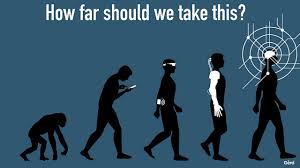Table of Contents
ToggleWhat is Artificial Intelligence?
Artificial intelligence (AI) is a branch of computer science focused on developing machines that can perform tasks that normally require human intelligence, such as visual recognition, speech recognition, decision-making, and language translation. The ultimate goal of AI is to create systems that can perform tasks that normally require human intelligence and expertise, without the need for human intervention. It is also more helpful in digital marketing.
What is Human Intelligence?
Human intelligence includes thinking, learning from different experiences, understanding complex concepts, applying logic and reason, solving mathematical problems, recognizing patterns, reasoning and decision-making, information retention, and interaction with fellow humans. refers to the human intellectual ability that enables the communication between existence.
Can it replace human intelligence?
The latest approach, artificial intelligence (AI), is a new scientific engine that enables machines to learn by themselves with human-like intelligence by combining deep learning, machine learning, and data science algorithms. 
Recent achievements in AI closely mimic human intelligence, but cannot surpass the human brain. Our minds acquire knowledge through comprehension, reasoning, learning, reasoning, and experience. The way we all feel, especially emotions, separates us from digital machines, robotics, AI technology, and more. Your mind and heart prioritize the importance of human intelligence over AI.
However, due to the development of AI, we cannot fully utilize the brain and mind, and the risks of artificial intelligence are increasing. Machines mimic human behavior, but they are not yet capable of making rational decisions. Machines need the next level of development to handle “common sense”. This development takes years, as common sense varies from person to person.

All these disasters challenge us to improve our AI capabilities by using the right algorithms and data to improve our AI technology. Otherwise, AI will not be able to coexist with our morals, ethics, and capabilities. We possess many kinds of human intelligence, such as morality, ethics, skill, intuition, instinct, reflexes, accuracy, accuracy, timing, quality judgment, comprehension, reasoning, learning, reasoning and experience, and emotion.
The use of artificial intelligence is sweeping the globe. Consider the most recent COVID-19 coronavirus pandemic as an example. In the United States, there are a number of custom software development solutions companies using their AI development services to predict viruses in the human body, find vaccine combinations, assist patients with virus treatments, and much more. All of these tasks fall under the purview of a health worker, but AI is assisting since it can respond more quickly and provide assistance to people. The number of jobs lost to AI will rise if it improves. Accounting, banking, and sales are being replaced by AI and robotics, which greatly raises unemployment.
In response to the subject of whether artificial intelligence can replace human intelligence, it is noted that while AI advancements closely mimic human intelligence, they are limited by our brains. With a sense of understanding, learning, logic, experience, and reasoning, we gain a tremendous quantity of knowledge. In a sense, we are aware of everything, especially the feelings that set us apart from robots, machines, cutting-edge technology, and much more. Your brain elevates human intelligence over artificial intelligence in terms of importance.
However, as artificial intelligence develops, the risks associated with it grow as humans are unable to fully utilize our hearts and minds. Machines replicate our behavior, but they still lack the ability to reason rationally. They require the subsequent stage of evolution, where they should develop “common sense.”
Since everyone has a different understanding of common sense, this evolution could take many more years! This indicates that AI computers do not comprehend the terms “cause” or “effect.” While we humans can make judgments based on cause and effect that will benefit specific groups within our society, we do not always do so. Making robots or other things with human-like intelligence has moved from science fiction to our reality. Previously difficult tasks might now be accomplished by machines.
To make our work easier, we have tried to instill intelligence into machines. Bots, robots, humanoids, and digitalized individuals can outrun humans and form alliances from a variety of angles. When compared to human workers, AI-driven apps typically offer greater and better execution speeds as well as larger operational capacities. Human intelligence is quickly able to recognize a variety of knowledge or expertise. It does not rely on the previously collected information necessary for artificial intelligence.
Also read:The Bard V/S The New Bing In The Generative AI World
Conclusion
Artificial intelligence will undoubtedly contribute to the development of many medical benefits, but it won’t take over the healthcare sector. In a matter of microseconds, artificial intelligence can read a psychological book, yet it is unable to identify the true source of stress and despair. Unimaginable levels of design can be achieved with AI, but emotions captured in oil paintings may be missed.AI is one tool that can aid people; whether it turns out to be useful or dangerous depends on us.

